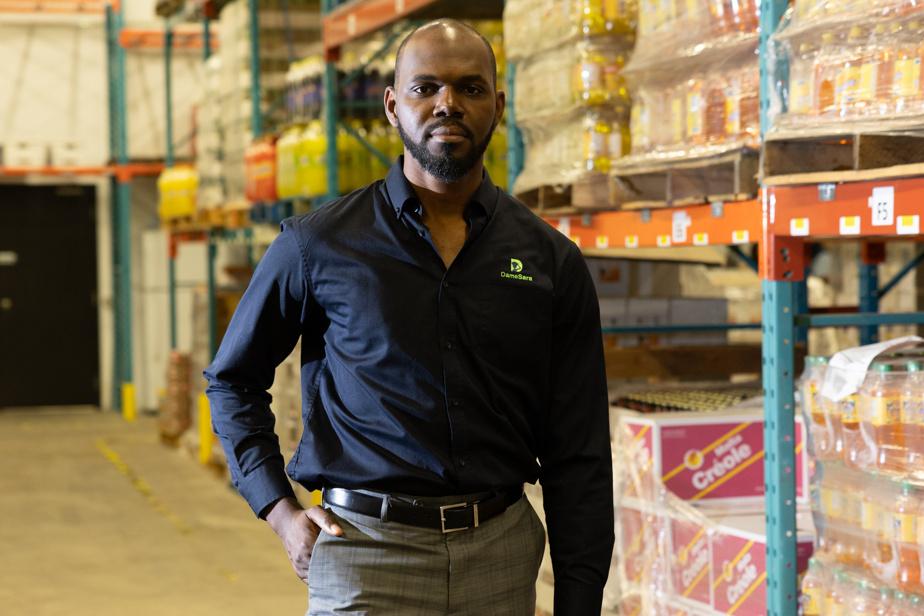
Times are tough for entrepreneurs struggling to find workers. At the same time, food inflation has left many consumers struggling to meet their needs. Isaac Bosquet addresses both of these challenges: his food delivery company, Damesara, invites its customers to become part-time delivery men. It will sweeten the grocery bill.
Posted at 7:00 am
Damesara is no ordinary food company. On the shelves of its warehouse in Lachine, local produce rubs shoulders, but Pakistani rice, Tunisian sardines and bananas or the sparkling and very sweet Choukoun drink, flavored with exotic fruits, are popular in Haiti. Damesara bills itself as Montreal’s multi-ethnic food warehouse. She primarily sells online and delivers.
There are now five permanent employees, but Damesara wants to take a growth phase soon to reach more members of Quebec’s communities that find familiar foods that are under-distributed or scattered all over the place.
“We choose a lot of our purchases according to the requests of our customers, explains Isaac Bosquet. We listen to them a lot. »
And the entrepreneur clearly sees inflation affecting his customers, the more he talks about it. Damesara already has a program that offers discounts to its big buyers. It just added a component to its “affiliate” programs: customers can make deliveries. Most of these are people who already have a full-time job, explains Isaac Bosquet, but for whom these few extra hours of work are welcome. “Everyone is benefiting! he says.
The delivery person must use his own vehicle and is compensated according to the distance he travels.
Already 13 people are participating in this program. Damesara has a number of what it calls its “associate” clients.
A proven formula, a partner opens an account and recruits customers who place their orders through him. Affiliated customer will receive 10% discount on every purchase of his friends or family members. Again, explains Issac Bosquet, this is a way to significantly reduce the grocery bill.

Photo by Martin Tremblay, The Press
Damesara warehouse in Lachine. There are mainly products from Quebec, Haiti, the West Indies, Tunisia and Algeria.
seduction
Caroline Thelemack discovered damesara two years ago, when she was offered a basket of food while returning to her country of origin, Haiti. Most of the food sold at Damesara comes from Haiti or the West Indies.
“I found it interesting because Dame Sarah was a small trader in Haiti and she was at the heart of the country’s economy,” said Caroline Thelemac, president of Les Gazelles, a club dedicated to women’s well-being.
I love the way Damesara manages to make Haitian culture more accessible.
Caroline Thelemack, client
For example, by selling already grated Haitian chocolate, it is possible to skip a step in the preparation of this recipe, which can sometimes take time.
Caroline Thelemack has just joined the discounted associate program. “It also allows me to introduce Haitian cuisine,” she said.
Damesara now wants to increase its customer base.
How to join them?
“We’re going to visit churches and mosques in Montreal,” explains Isaac Bosquet, who is going to make a list of places of worship to be visited by a team dedicated to recruitment. Tunisia and Algeria are also well represented at Damesara. “I call imams personally to explain our project,” says the founder.
Damesara has just been licensed to sell and deliver liquor.
Isaac Bosquet proudly says that Jamaican beer will soon be added to its already vast offering, but also local products to satisfy the thirst of all its customers.






